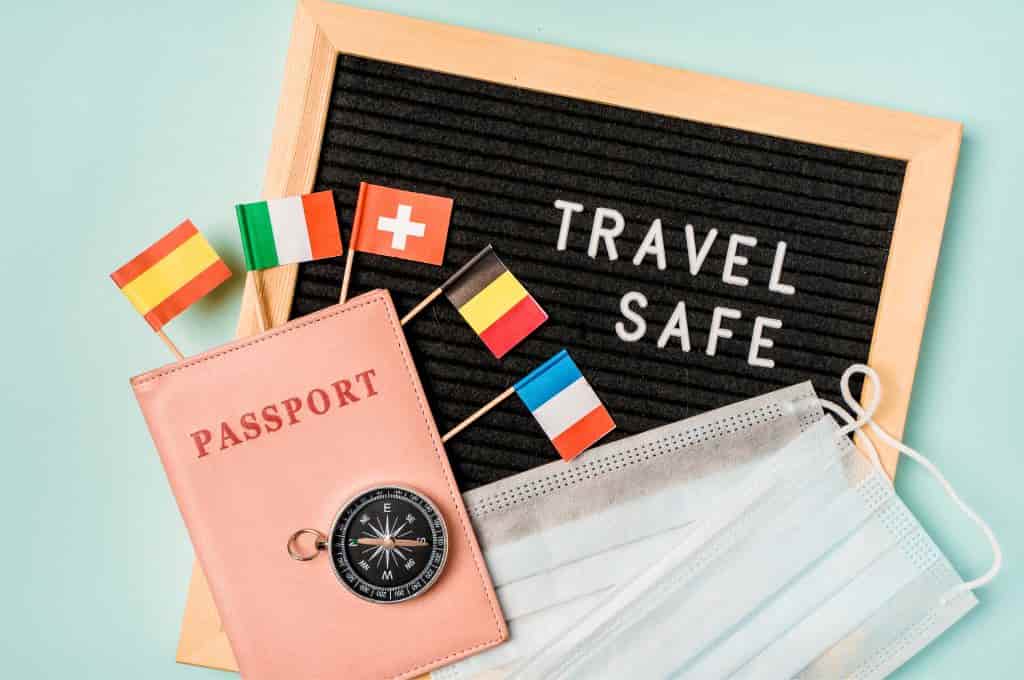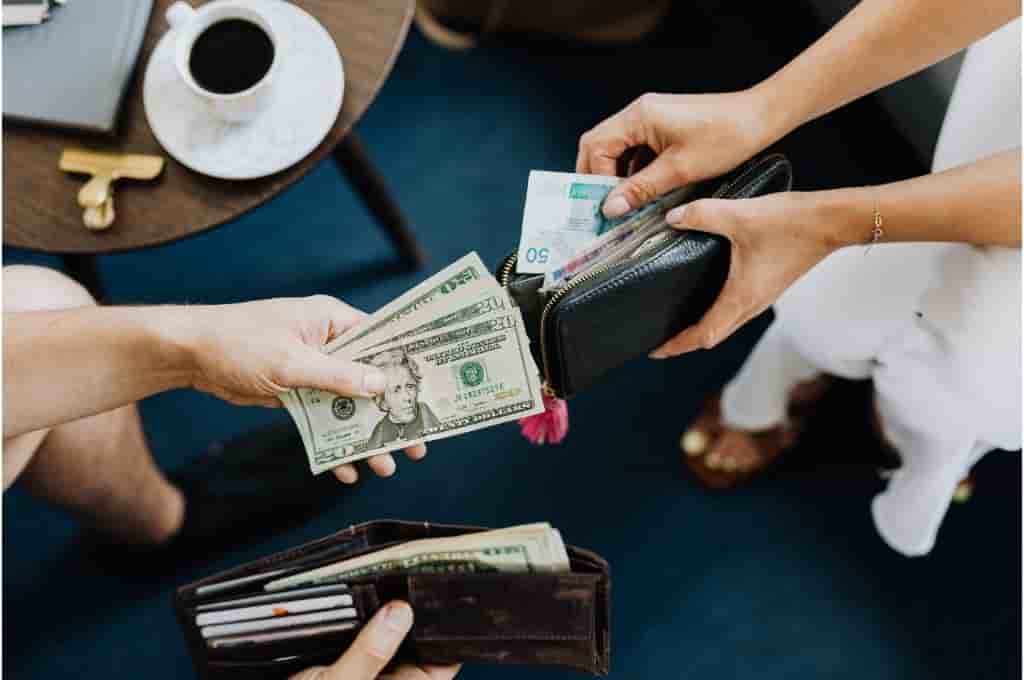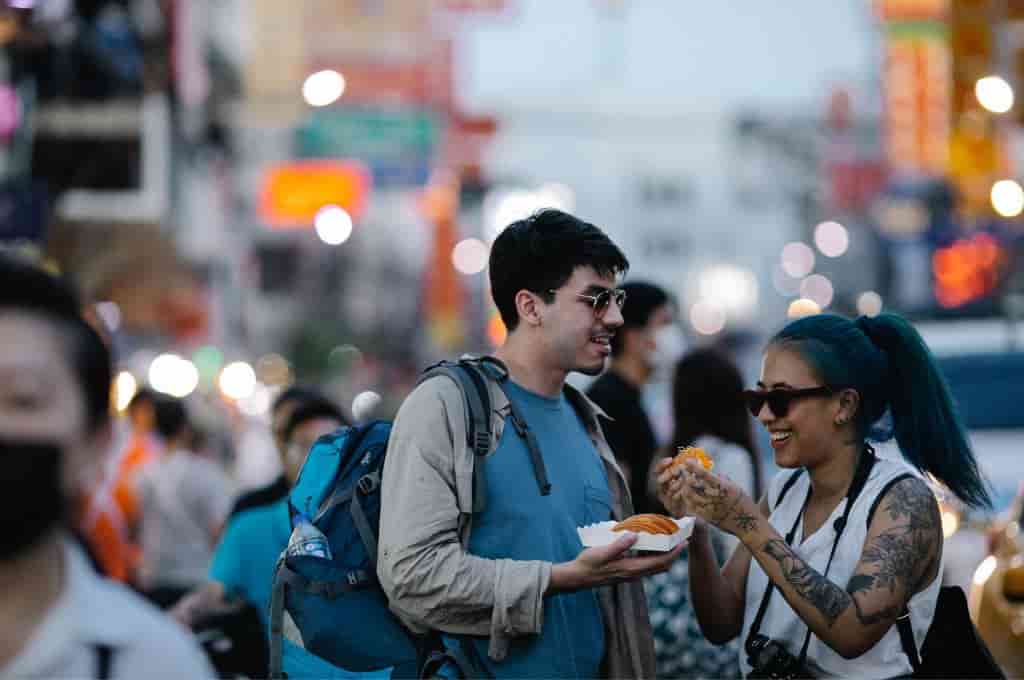15 Tips For Staying Safe While Traveling
- By Seema
Guarding your safety and well-being must be a priority when you’re away from home. By adhering to a few basic safety precautions, you can ensure that you are as prepared as possible before your vacation and significantly reduce the likelihood of any mishap occurring during your travels. Here are 15 tried-and-tested tips to help you stay safe, avoid unforeseen disasters, and maximize your fun while traveling.
1). Do Your Research
Try to learn as much as possible about the destination before arriving. Research online and speak with locals/acquaintances to learn about the political situation, travel advisories, local customs/laws, cultural norms, food in the region, potential safety concerns, areas to avoid, and who to call in an emergency. Understanding the country helps you take necessary safety measures and avoid unpleasant surprises.
2). Get Travel Insurance
Get travel insurance for your trip to safeguard your physical and financial safety. The safety cushion can help you minimize paying out of pocket for medical crises, lost luggage, flight delays/cancellations, and evacuations. While some credit cards have built-in protections, some do not. Review the details and ensure that you are covered while heading overseas.

3). Be Cautious With Your Money
Keeping a lot of cash on you is never a good idea. There are many different payment methods available for international travel. Carry a credit/debit card with no foreign transaction fees to make global transactions without excessive charges. Inform your credit card company that you will be traveling, or your card may be blocked for suspicious activity. Take out cash from ATMs only when necessary. If you must bring a large amount of cash, only get what you need for the day and leave the rest in the hotel’s locker. Keep your cash spread out over multiple places so you are never totally out of money if one of your piles is stolen. Use cross-body bags or money belts and opt for clothing inside pockets and zip closures. Do not keep valuables in your back pocket and wear your backpacks on the front of your body in crowded places.
4). Make Digital Copies of Important Documents
You cannot predict when you might need a copy of your credit cards, driver’s license, passport, visa, and other key papers. Scan your documents and save them in both digital and print formats so you always have a backup in case anything is lost or stolen. This would help you figure out who to contact and will simplify the process of getting a replacement.

5). Don’t Flaunt Your Wealth
Wearing expensive jewelry or flashing cash is a surefire to attract crooks and pickpockets. Leave your valuables at home before you travel. If you are carrying an expensive camera or precious trinkets, keep them hidden until you absolutely need them. Place them securely in your hotel locker, especially if you’re visiting crowded areas.
6). Drink Responsibly
Drinking and having fun are perfectly acceptable as long as they are done sensibly, especially in unfamiliar settings. Getting intoxicated while traveling is generally a bad idea. It can lead to sluggishness, loss of inhibitions, and a vulnerability to undesirable activities. Know your limits, stay fully aware of how much you’re ingesting, and don’t lose control. Women should never leave their drink unattended and always keep an eye on it while drinking in public.

7). Choose Trusted Transportation Companies
Research safe transportation options before arriving in a new location and stick to them. If your local cab does not have a meter, decide the fare beforehand. Use ride-sharing apps such as Uber, Grab, Ola, and Lyft. Not only are they transparent, cost-effective, and simple to use, but they also provide security measures such as tracking and registration. Always keep a map handy to avoid getting lost. When using bus services, make sure you use a reliable provider that has numerous positive online reviews.
8). Beware of public Wi-Fi
Refrain from being tempted by the ease of free Wi-Fi in public areas. The challenge with public Wi-Fi is that it comes with multiple hazards. Password leakage is one of the most serious public Wi-Fi threats since it allows nefarious hackers direct access to your passwords and other sensitive information. If you cannot function without internet connectivity, investing in mobile data plans is recommended.
9). Be Aware of Scams
Research the location you are visiting to see what the local fraudsters are up to. Many common tourist scams are somewhat universal, while others are more unique to specific destinations. Examples include the credit card fraud in Bali, the ‘ring scam’ in Paris, the “fake baby” trick in Rome, and the ‘Spill On The Clothes’ prank in Argentina. You are less likely to fall for these scams if you are aware of them in advance. While this information is often included in travel advisories, further internet research will help uncover potential risks to your safety and finances.

10). Watch What You Eat and Drink
Use caution when consuming food and water, particularly in places with poor sanitation and hygiene standards. In areas where tap water is suspect use bottled water and ensure the seal is in place. The best way to ensure the safety of food is to eat it hot and freshly prepared. Avoid street food, dairy, and raw salads. If you are tempted to eat street food, opt for the busiest stalls the locals frequent. Eat only peel-able fruits to avoid bacterial contamination. Please specify any food allergies or preferences you may have.
11). Try to Blend In
Anyone who appears to be from another country is particularly susceptible to crime, so try to fit in as much as possible. Avoid doing anything that may draw unwelcome attention, such as drinking in the open, speaking in your native language in public places, taking pictures in the middle of the road, dressing in an eye-catching way, or engaging in public displays of affection. If you walk confidently, dress, and act like a local, the chances of a criminal noticing you are a tourist are quite low, unless your skin color makes it very obvious.
12). Stay in Touch With Your Friends and Family
Before you go, inform your close relatives and friends where you are going, how long you will be gone, and how they can contact you if something comes up. Share your itinerary with someone you trust back home, and check in with them at regular intervals. Keep them informed about any modifications to your plans. If you are traveling in locations without Wi-Fi or phone access, call them as soon as you receive a signal so they do not become worried.

13). Stay Vigilant
Stay alert and mindful of what’s going on around you, especially on deserted routes and congested tourist spots. Never let your guard down and always keep a close tab on your luggage and personal belongings. When conversing with strangers, exercise caution, and walk away immediately if someone is acting suspiciously. This is particularly relevant for women who travel alone. Criminals tend to target those who are distracted or alienated from the outside world.
14). Trust Your Intuition
If anything doesn’t feel right, if some places make you uneasy, or if you feel like you’re being watched, trust your instincts and leave the scene. Your subconscious frequently detects things that you are not consciously aware of. So, instead of dismissing your concerns as absurd, pay more attention to what’s going on around you. Guts and instincts have been humans’ best friends since ever.
15). Use Common Sense
The first step to staying safe is to use common sense. Respect local laws, customs, and traditions; avoid acting offensively; don’t walk about alone at night; decline lifts from strangers; and dress suitably for the culture. Only inform people about your travel plans or where you’re staying once you’re sure you can trust them. Avoid putting yourself in danger by taking risks for photos, disregarding warning signs, getting too close to wildlife, crossing streets recklessly, and sharing your whereabouts on social media. Most of the time, as long as you use common sense, you should be safe.

Bonus Tips to Stay Safe While Traveling
- If you are traveling internationally, register with the embassy or consulate and keep their contact details on your phone so that you can reach them promptly in an emergency. Also, write it in a notebook and mail it to yourself. This ensures that even if you lose your phone, you still have instant access to the information.
- Even with robust security systems in place at your hotel, you should still exercise caution and take precautions to make your room safer. Keep your window closed and double lock your door at night. Do not let strangers into your home.
- Bring travel locks, especially if you are staying in a hostel. Secure your bags to your bed or chair when you leave for the day to prevent them from being stolen.
- Always keep a functional, fully charged mobile phone with you when traveling around the world. If you anticipate spending a significant portion of the day outside of the hotel, bring a portable charger.
- Check for any destination-specific immunizations you may need while planning for the trip.
- Choose ATMs that are attached to banks, as they are less likely to be tampered with by fraudsters.
- Learn some basic words in the language of the country you’ll be visiting. Communication lowers barriers and makes life much easier when traveling.
- Wash your hands with soap regularly and keep them sanitized. Wear masks in busy areas.
- No matter how careful you are, injuries can occur while traveling abroad. That’s why you should always travel with a basic first aid kit that includes necessities like bandages, pain relievers, allergy medications, diarrhea tablets, antiseptics, cold packs, mosquito repellents, sunscreen, and more.
